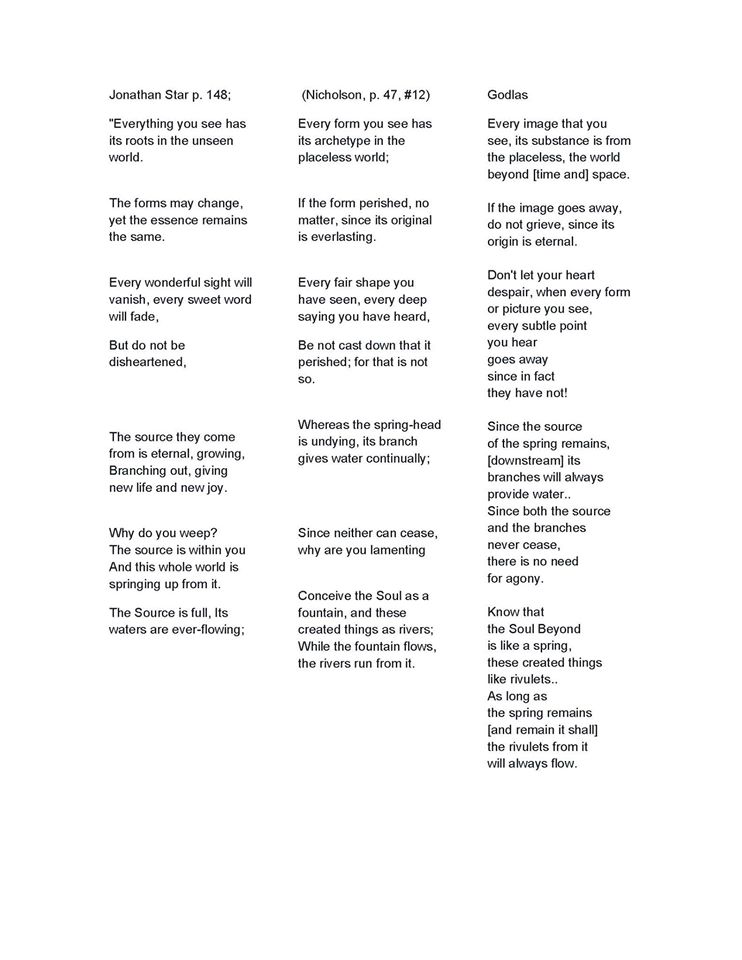About a week ago a popular translation of a poem of Rumi’s was making the rounds. So I decided to try to find the original. I had to order a used book to complete my search. But the book arrived today, and thankfully, I was able to find the source with the help of the book. Here is the popular translation
“Everything you see has its roots in the unseen world.
The forms may change, yet the essence remains the same.
Every wonderful sight will vanish, every sweet word will fade,
But do not be disheartened,
The source they come from is eternal, growing,
Branching out, giving new life and new joy.
Why do you weep?
The source is within you
And this whole world is springing up from it.” (Translation by Jonathan Star and Sharam Shiva).
I’ll post the original poem in a few hours and subsequently the translation, inshallah.
هر نقش را که دیدی جنسش ز لامکان است
گر نقش رفت غم نیست اصلش چو جاودان است
هر صورتى كه ديدى هر نكته كه شنيدى
بد دل مشو که رفت آن ، زیرا نه آنچنان است
چون اصل چشمه باقیست ، فرعش همیشه ساقیست
چون هر دو بی زوالند ، از چه ترا فغان است
جان را چو چشمه ای دان ، وین صنع ها چو جو ها
تا چشمه هست باقی ، جو ها از آن روان است
Jonathan Star stated that he based his translation of this poem on Nicholson’s translation in the latter’s Divani Shamsi Tabrizi, #12, the Persian text and the translation of which goes from pp. 46-49 (published first in 1898).
The English posted above is about a third of Star’s translation (and a third of the whole poem).
Nicholson’s translation is as follows:
Every form you see has its archetype in the placeless world;
If the form perished, no matter, since its original is everlasting.
Every fair shape you have seen, every deep saying you have heard,
Be not cast down that it perished; for that is not so.
Whereas the spring-head is undying, its branch gives water continually;
Since neither can cease, why are you lamenting
Conceive the Soul as a fountain, and these created things as rivers;
While the fountain flows, the rivers run from it.
Note that this poem is not in the authoritative critical edition of Rumi’s Divan-e Shams-e Tabrizi. So it may not actually be by Rumi. On the other hand, he might have written it.

I’ve gotten permission from Dr. Alan Godlas (Abdul Haqq), who is a professor at the University of Georgia for Islamic and Sufi studies, to repost his Facebook postings on Islam and Sufism. All translations are done by Abdul Haqq Godlas unless otherwise noted.
